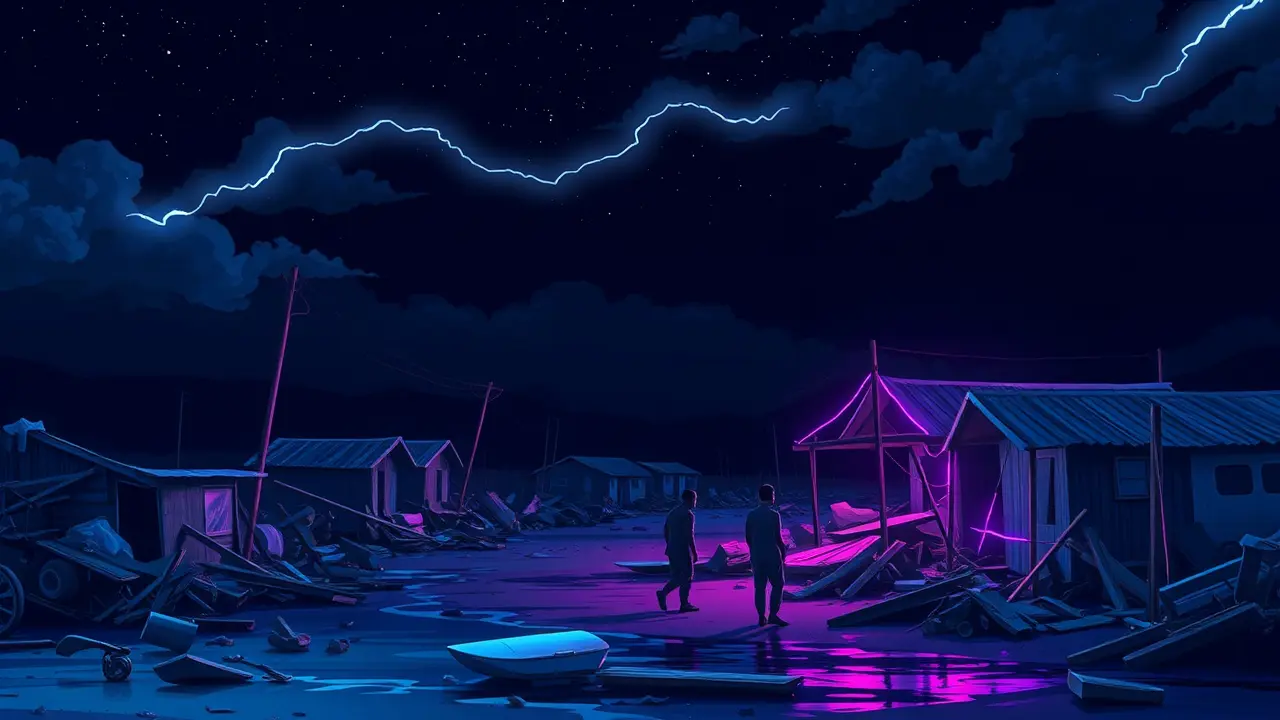
Otherweather & natural events
Desperation in Jamaica as hurricane leaves residents without aid.
EM
Emma Wilson
1 day ago7 min read
The air in Black River hangs thick with a silence broken only by the desperate shuffle of feet through debris and the low, worried hum of voices sharing the same grim question: where is the help? In the stark aftermath of the hurricane, a crisis of survival is unfolding, one that feels less like a natural disaster and more like a profound systemic failure, leaving residents to confront a terrifying new reality defined by isolation and a fight for the most basic necessities. This isn't merely a story of damaged roofs and flooded streets; it is a raw, human drama playing out in the stifling heat, where the social contract feels severed.I’ve read the morning Reuters alerts, I’ve seen the satellite images of the storm’s path, but the accounts coming from the ground in Jamaica carry a different weight—they are visceral, emotional, and speak to a collapse of the emergency response infrastructure that was supposed to be a lifeline. Families who weathered the storm's fury now face a second, perhaps more demoralizing, assault: the agony of being forgotten.They speak of rationing the last sips of clean water, of using shattered pieces of their homes to build makeshift shelters, their hope curdling into a bitter resignation with each passing hour that no official convoy arrives. The broader context here is critical; the Caribbean is no stranger to hurricanes, and protocols exist, yet in Black River, these protocols have seemingly evaporated, exposing a fragile chain of command and logistical nightmares that prevent aid from reaching those at the epicenter of need.We’ve seen this script before, in the delayed responses to earthquakes in Haiti and the chaotic relief efforts following typhoons in Southeast Asia—a pattern where the most vulnerable communities are consistently the last to receive assistance, if they receive it at all. Expert commentators from disaster relief NGOs point to a perfect storm of factors: impassable roads crippling ground transport, damaged airstrips limiting aerial drops, and often, a tragic misallocation of resources where supplies pile up in centralized hubs while outlying towns like Black River are left to fend for themselves.The possible consequences are dire and extend far beyond immediate hunger and thirst; we are looking at the potential for a public health catastrophe, with the risk of waterborne diseases like cholera and dysentery rising exponentially without access to clean water and sanitation. Furthermore, the psychological trauma of this abandonment will leave deep scars on the community’s psyche, breeding a long-term distrust in governmental institutions and international aid organizations alike.This is more than a logistical failure; it is a profound human rights issue. The narrative from the ground is not one of passive victims but of people demonstrating incredible resilience, organizing impromptu community kitchens and search parties with whatever meager resources they have left.Their fight to survive is a powerful, heartbreaking testament to the human spirit, but it is a fight they should not have to wage alone. The international community must look beyond the headlines and satellite imagery and listen to these voices from Black River; their desperation is a searing indictment of a broken system, and their survival hinges on the world not looking away.
#hurricane
#Jamaica
#disaster relief
#food shortage
#desperation
#Black River
#featured
Stay Informed. Act Smarter.
Get weekly highlights, major headlines, and expert insights — then put your knowledge to work in our live prediction markets.
Comments
It’s quiet here...Start the conversation by leaving the first comment.
© 2025 Outpoll Service LTD. All rights reserved.